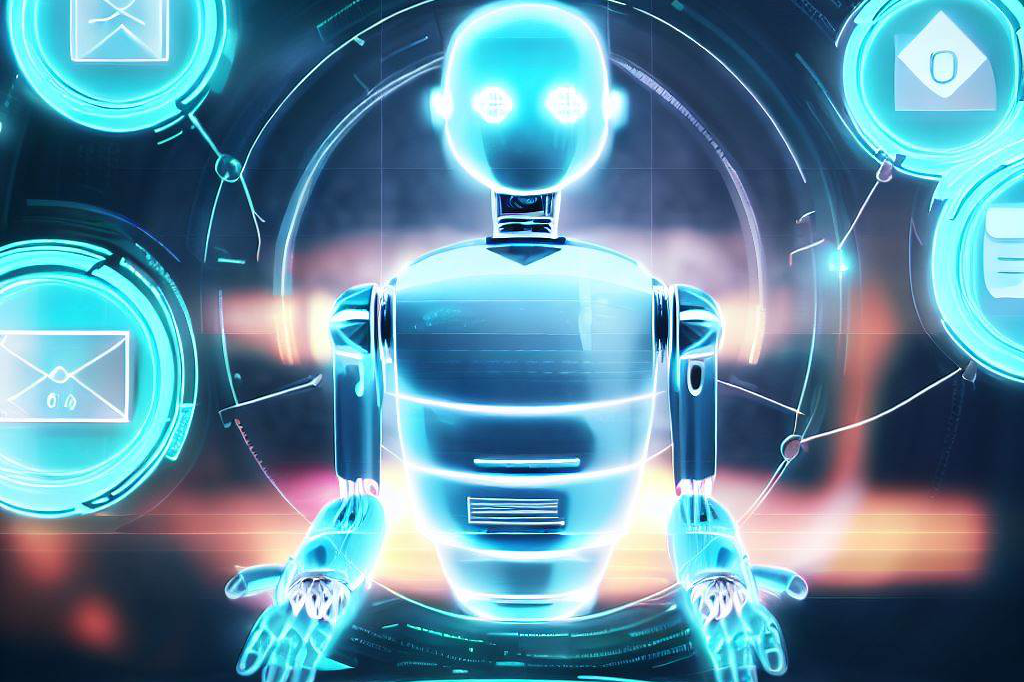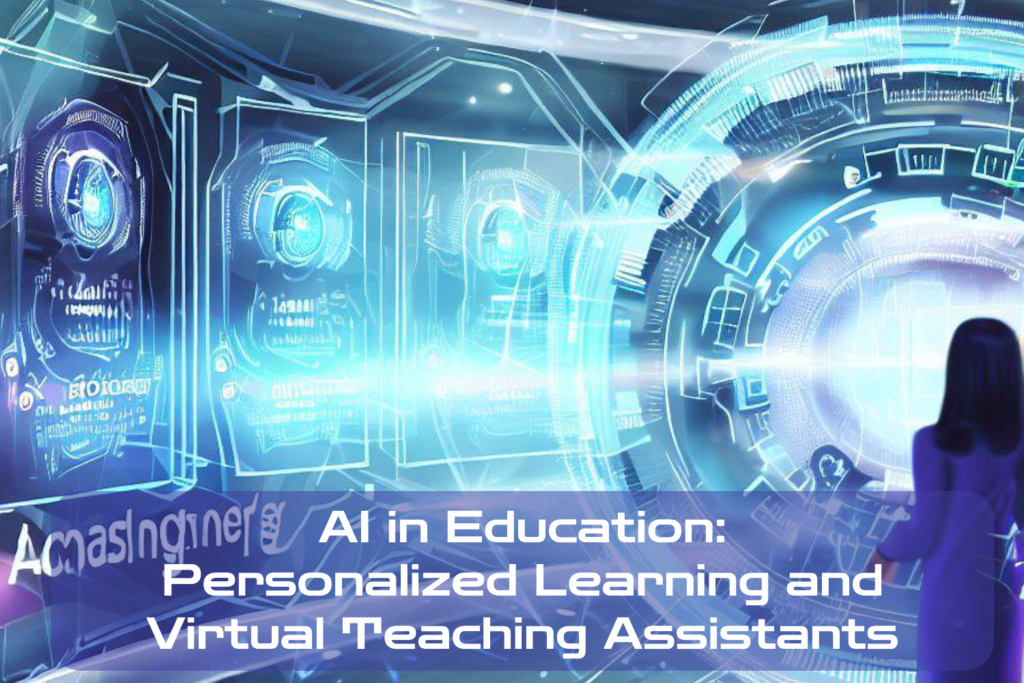Artificial Intelligence (AI) has become a buzzword across various industries, including education. AI is transforming how students learn and how teachers teach. In the context of education, AI refers to the use of technology to simulate human intelligence, such as machine learning, natural language processing, and computer vision, to improve teaching and learning experiences.
Definition of AI in Education
AI in education involves using algorithms, software programs, and intelligent machines that can perform tasks that usually require human intelligence.
For instance, an AI-powered system can analyze data on student performance or recommend educational resources based on their interests or strengths.
AI applications used in education include
- intelligent tutoring systems (ITS),
- personalized learning environments (PLE),
- adaptive assessments,
- virtual tutoring assistants (VTA),
- smart content delivery systems
and many more.
Importance of Personalized Learning and Virtual Teaching Assistants

Personalized learning aims at adapting the educational experience to meet the unique needs of individual learners, while virtual teaching assistants offer support services through online platforms.
The combination of personalized learning with virtual teaching assistants has shown great potential for revolutionizing traditional classroom instruction by empowering teachers with powerful tools for delivering targeted instruction that meets each student’s needs.
Personalized Learning is beneficial because it enables students to learn at their own pace without pressure from their peers while providing them with the opportunity to explore their interests freely.
On the other hand, virtual teaching assistants reduce teacher workload while still providing high-quality support for students hence improving efficiency in classrooms.
Overview of the Benefits of AI in Education
The benefits associated with utilizing artificial intelligence in educational settings are vast.
One advantage is improved engagement levels among students through customization tailored to each student’s particular needs.
Secondly, it enhances assessment procedures through data analysis, leading to personalized feedback for both students and teachers.
AI helps reduce the workload amongst teachers as well as promote student motivation and achievement.
The Power of Personalized Learning

Personalized Learning is an approach to education that tailors instruction to meet the individual learning needs of each student. This approach recognizes that no two students learn in quite the same way and tailors teaching to ensure a more effective, engaging, and efficient learning experience.
The key advantage of AI in personalized learning is its ability to streamline the process of customization. Automated systems allow for faster analysis of data, making it easier for educators to identify areas where students are struggling and provide targeted assistance.
With AI-powered platforms providing real-time analytics on student performance, teachers can quickly evaluate complex data points and adjust instructional techniques accordingly, whether it’s providing extra support for weaker topics or accelerating instruction for advanced learners.
One promising example of personalized learning through AI is Carnegie Learning’s adaptation software, which can help students master math skills by adjusting instruction based on their answers.
The software identifies gaps in knowledge and provides focused intervention strategies accordingly.
Using algorithms that take into account both previous performance as well as pace of completion, this program promises a more personalized strategy when compared with traditional classroom settings.
Virtual Teaching Assistants

Virtual Teaching Assistants (VTAs) are computer programs that assist teachers in their daily tasks, such as grading, answering questions, and providing feedback.
VTAs use artificial intelligence algorithms to understand student’s queries and provide appropriate responses. These systems are designed to enhance teacher’s productivity by reducing workload and giving personalized attention to students.
The Benefits of Virtual Teaching Assistants through AI
One of the main advantages of Virtual Teaching Assistants through AI is that they allow for personalized learning experiences. VTAs can provide individualized feedback to each student based on their learning styles, strengths, and weaknesses. This level of personalization helps students stay engaged in the learning process while gaining a deeper understanding of the material.
Furthermore, VTAs have been proven to be effective in increasing student engagement and performance.
A study conducted at Carnegie Mellon University found that students who used a VTA were more likely to complete homework assignments and score higher on tests than those who did not use a VTA.
The results suggest that virtual teaching assistants can be an effective tool for improving academic outcomes. In addition, VTAs offer cost-effective solutions for educational institutions by reducing the need for additional staffing resources.
With the increasing demand for quality education coupled with limited resources, institutions are exploring innovative ways to deliver quality teaching at a reduced cost. Virtual teaching assistants offer a cost-effective solution without compromising the quality of education.
Examples of Successful Implementation
The use of virtual teaching assistants is becoming increasingly popular in educational settings around the world with many successful implementations reporting positive results.
In 2016-17 Georgia State University had impressive results using Pounce – its AI-powered chatbot designed as an advising assistant – which helped raise first-year retention rates from 83% up to 88%.
Pounce interacts with students through automated messages and helps them navigate the complex admissions process.
Another successful implementation is IBM Watson’s educational program. IBM Watson Education is a suite of AI-powered applications that help teachers personalize learning and gives students unique insights into their progress.
The program uses natural language processing and machine learning to analyze student data and provide personalized recommendations tailored to their needs. Other institutions, such as Arizona State University, Kent State University, and the University of Georgia have also adopted virtual teaching assistants with positive outcomes in student engagement and academic performance.
Challenges and Limitations

Ethical Considerations
Artificial Intelligence is a double-edged sword. In the educational sector, it has immense potential to transform the traditional teaching-learning process.
However, the deployment of AI in education can raise ethical concerns if not implemented properly. For example, personalized learning through AI can create a situation where students are being tracked and monitored continuously, which can result in privacy infringement.
Furthermore, the use of AI in assessing students’ performance may lead to biased decisions that adversely affect some students’ progress. Therefore, it’s crucial for educators and policymakers to understand these ethical concerns before implementing AI-powered systems.
Privacy Concerns
Another challenge associated with the use of AI in education is privacy infringement. Personalized learning requires collecting vast amounts of data on individual students’ behavior patterns and preferences.
This information can be valuable for improving student engagement and curriculum development; however, there are privacy risks associated with this process. Inadequate data protection measures or misuse of data collected through AI-powered systems could compromise student privacy rights.
Technological Limitations
The effectiveness of AI-powered systems depends heavily on technological infrastructure and accuracy levels.
Most schools have limited technical resources required for integrating sophisticated machine learning algorithms into their curriculum delivery systems or upgrading their networks to fully support such technologies. Additionally, some schools may lack high-quality digital content that is necessary for developing effective personalized learning experiences using AI technology.
The integration of AI technology in education has several challenges, ranging from ethical considerations such as data privacy risks to technological limitations like inadequate technical resources or content quality issues. To overcome these challenges, educators must work closely with policymakers and technology providers to develop guidelines that ensure responsible use of AI-powered systems while promoting innovation in teaching-learning methods for improved academic outcomes among learners at all levels
Final Thoughts

The future of AI in Education is bright as more educational institutions adopt this technology to improve student learning outcomes.
In addition to providing personalized learning experiences and virtual teaching assistants, AI can be used to predict student performance patterns based on data analysis and generate individualized recommendations on what educational resources are best for each student based on their specific needs and progress so far.
While there are challenges associated with adopting AI technology in education, such as ethical considerations like data privacy concerns or technological limitations like network connectivity issues that prevent full access from remote areas, it is clear that AI has the potential to transform education by providing personalized experiences and support for both students and teachers alike.
As we continue down this path towards an increasingly digital world , it is important that we keep these challenges in mind while also keeping our eyes open for new opportunities that arise from leveraging advanced technologies such as Artificial Intelligence (AI).

C M, a seasoned editor, journalist, and consultant, is deeply fascinated by the convergence of technology, space, and the future of humanity.
With a particular interest in transhumanism, futurology, and the philosophical and ethical dimensions of these domains, C M serves as the lead contributor to TranscendSphere and SpaceSpotlight.
When not penning insightful articles on these rapidly evolving fields, C M indulges in their love for podcasts and books, proudly embracing their status as a ‘Happy Nerd Extraordinaire!’





